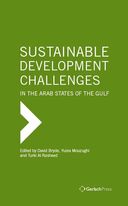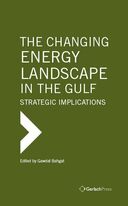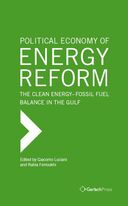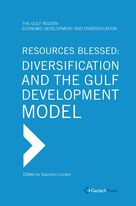Environment

PUBLISHER PRIZE 2025 FOR GERLACH PRESS
2025-10
Gerlach Press is delighted and proud to have been awarded the German Publisher Prize 2025, which is presented by the Federal Government's Secretary for Culture. The main criteria for the jury's decision were an innovative publishing programme, the quality of publishing work, and a particularly appealing design of the books. We would like to thank all our authors who are the very foundation of our success, and hope that this recognition will further strengthen the press. Ad multos annos!...
more »

David Bryde, Yusra Mouzughi, Turki Al Rasheed
Sustainable Development Challenges in the Arab States of the Gulf
2015
This volume surveys the increasing challenges facing the Arab Gulf states in terms of sustainable consumption and production. Topics include: - Environmental sustainability: waste, recycling, water, energy, renewables, and pollution - Economic sustainability: employment, education, training and business engagement - Social sustainability: equality and diversity, pollution, congestion, community participation Includes contributions from specialists from the UAE, Bahrain, Lebanon, Egypt, Oman, Saudi Arabia, Morocco and Qatar a...
more »

Gawdat Bahgat
The Changing Energy Landscape in the Gulf:
Strategic Implications
2015
Extreme fluctuations in oil prices (such as the dramatic fall from mid-2014 into 2015) raise important strategic questions for both importers and exporters. In this volume, specialists from the US, the Middle East, Europe and Asia examine the rapidly evolving dynamic in the energy landscape, including renewable and nuclear power, challenges to producers including the shale revolution, and legal issues. Each chapter provides in-depth analysis and clear policy recommendations....
more »

Giacomo Luciani, Rabia Ferroukhi
Political Economy of Energy Reform:
The Clean Energy-Fossil Fuel Balance in the Gulf States
2014
Climate change requires coordinated global responses. All nations, including major Gulf Arab oil producers, should implement policies to contain greenhouse gas (GHG) emissions. Yet all realistic scenarios point to the continuing global need for fossil fuels. The countries of the Gulf Cooperation Council (GCC) thus face a dilemma between continuing development and use of their fossil fuel endowments and increasing reliance on low carbon sources, such as nuclear, solar or wind. This book explores various facets of the dilemma....
more »

Giacomo Luciani
Resources Blessed: Diversification and the Gulf Development Model
2013
The Gulf countries have adopted a unique combination of policies to encourage diversification with largely positive results, while there are significant distinctions between the individual cases. This work evaluates various examples to show the extent to which the Gulf economies have diversifed to date, and how results can be measured, taking into consideration factors such as composition of GDP or exports; government services; and the categorization of industrial activities downstream of resources extraction (oil refining, ...
more »



